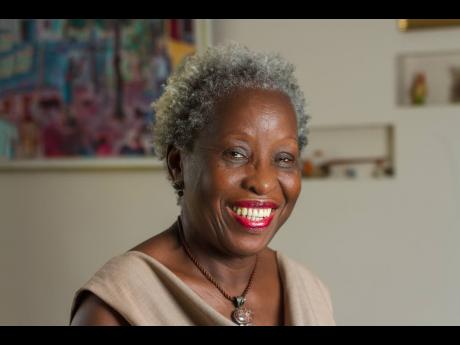Linnette Vassell | Constitutional reform – pathway towards gender justice
The Report of the Constitutional Reform Committee on the Transition to the Republic of Jamaica and other Matters (CRC Report), tabled in Parliament in late May, shows that the CRC’s mandate of the committee is to establish “a modern and new Constitution, which reflects an appreciation and understanding of Jamaica’s cultural heritage, governance challenges and development aspirations, and which embodies the will of the people”. (Ministry of Legal and Constitutional Affairs, Ministry Paper No. 1/2024), (P.3).
This is a tall order which the CRC has so far failed to meet, because, among other things, the population has not been enabled to meaningfully engage the process. Tracy Robinson, in assessing the constitutional reform processes in the Caribbean in the 1990s, described these as “critical acts of national and regional self-definition and collective refashioning of the Caribbean post-independence generation”. Today, the case is more compelling than the process, starting with the CRC itself, should be more broad-based, inclusive, and participatory to engender confidence that the mandate is being fully addressed, particularly regarding the gender justice agenda.
Promoting and securing gender equality and the empowerment of women and girls is an important national development issue, for, although men and women are equal under the law ( de jure); despite the fact that progress has been made to advance women’s rights, equality between women and men has not been achieved in reality ( de facto). This is influenced by the persistence of biased gender social norms which limit opportunities for women and undervalue and put constraints on our rights and capabilities. These biases operate as cultural norms and are embedded in all spheres of life - the economic, political and social systems and structures, including religion and the Church.
‘LIMIT’ AND ‘PERMIT’
Gender-biased social norms ‘justify’ and ‘permit’ men’s ability to limit and control women’s choices as a way of exercising their personal and social power. Patriarchy tells society that men must rule over women, and this significantly impacts the pervasive violence against women and girls that traumatises families, communities and the nation. Social attitudes, including tolerance of violence against women, makes it difficult for women (and for men who are among victim/survivors, albeit to a lesser extent) to seek and access support. Biased gender social norms continue to constrain women’s participation in politics and decision-making, and circumscribe how women are involved in public political life, including in political parties. The constitutional reform process must address and eliminate over time these deep seated gender-biased social norms which undermine the human rights of women and girls and of persons in other marginalised and vulnerable groups, such as persons with disabilities and the LGBTQI community.
The Jamaica Republic Constitution must ensure recognition of the principle that everyone has the same rights, responsibilities and opportunities, without distinction of any kind. It must provide for measures to achieve substantive or real equality, and to give the fullest expression to the meaning of democracy. These national aspirations and the related measures should be included in the Preamble which, commendably, the CRC has recommended for “the insertion of lofty aspirations as well as assertions of moral codes and declarations of political objectives”.(CRC report p.12). Sadly, the draft preamble submitted by the CRC’s chairperson (cited as chairman) is totally gender blind, as are the others, except for that one submitted by Sir Philip Sherlock to the 1991 Commission. The National Emblems included in the Annexures and, in particular, the National Pledge and the National Prayer, also need to be revisited and expressed in gender-inclusive language. In addition, measures to advance gender equity must be utilised to establish a level playing field, by taking circumstances into account and implementing specific actions to rectify any disadvantages. These measures should include, inter alia, Temporary Special Measures (TSMs), such as:
• Quotas to advance and secure equitable participation of women in leadership at all levels and in all spheres, but with special application to political parties;
• Campaign finance incentives for political parties to be linked to measures to address gender equity issues;
• Measures to secure work/life balance and promote equitable participation of men and women in care work;
• Measures to address the particular needs of men and boys, for example, to enhance learning and health outcomes among them.
PROVISIONS
In addition, the following provisions should be included as Articles in the Constitution or in the Preamble, as appropriate:
1. Statement affirming the equality of men and women
2. Definition of discrimination, which the current Constitution does not have.
3. A definition of discrimination against women, as reflected in the CEDAW Treaty. Here, discrimination is defined as …” any distinction, exclusion or restriction made on the basis of sex which has the effect or purpose of impairing or nullifying the recognition, enjoyment or exercise by women, irrespective of their marital status on the basis of equality of men and women of human rights and fundamental freedoms in the political, economic, social, cultural, civil and any other field”.
4. Establishment of a Gender Equality Commission by Parliament, as part of the enhanced national gender equality architecture. This Gender Commission will have responsibility to research, direct, approve and monitor the measures to enhance gender equity towards securing gender equality. This will include proposing/ensuring measures such as:
- statutes and policies to advance the objectives;
- gender parity in appointment t Boards and Commissions at all levels;
- ensuring that education and consciousness raising are directed to completing the cultural liberation of our citizens away from the damaging gender norms and other practices, attitudes and behaviours that undermine wholesome relations in the society.
5. use of simple, clear and gender-sensitive language throughout.
Linnette Vassell is a gender justice advocate. Send feedback to columns@gleanerjm.com


